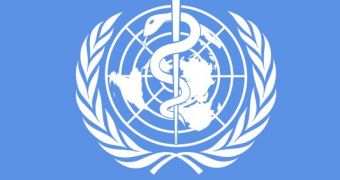In a statement made today, October 12, Marie-Paule Kieny, the head of Vaccine Research at the World Health Organization (WHO), announced that the United Nations agency plans to start sending H1N1 influenza vaccines to the developing world as early as next month. Most of the drugs will be donated by big pharmaceutical companies, including GlaxoSmithKline and Sanofi, and will be distributed to about 100 poor nations all across the globe, Reuters reports. Related supplies, including syringes and sterile equipment, will also be delivered.
“We are trying to have a first delivery starting in November. The idea is to start with northern hemisphere countries first,” the expert said at the press conference, held in Geneva today. The current influenza pandemic was officially declared into effect in June, after it rapidly spread throughout the world, from its original starting point, in Mexico. So far, mode than 4,500 people have fallen victims to the new virus, for which there is currently no cure. Tens of thousands of other patients have been committed to hospitals, with mild to severe symptoms, but made it through alive.
Kieny was also happy to inform the public that the original virus has not mutated into a more dangerous form since it first emerged, which means that the vaccines developed so far should work on it. The expert added that a single flu jab could have the desired effect. “All the data that we have seen show that one dose is sufficient,” she said. The WHO has some time ago estimated that it would take years before the WHO spread rate would slow down. The agency also believes that this flu season will be crucial in determining the viral outbreak's future development and spread.
According to Kieny, healthcare personnel in the beneficiary countries will receive the jabs first, so as to avoid contaminating their patients with the virus. Additionally, if all medical personnel are secure, then all clinics and hospitals can remain opened in case of further outbreaks, which is essential to ensuring people stand a fighting chance against the disease. The expert also underlined the fact that vaccine production efforts have exceeded expectations, and that more quantities than originally estimated may be soon made available.

 14 DAY TRIAL //
14 DAY TRIAL //